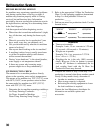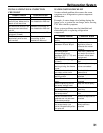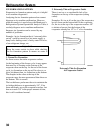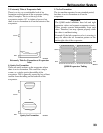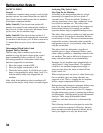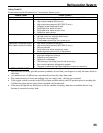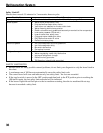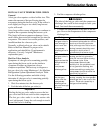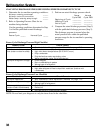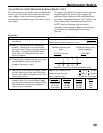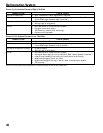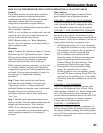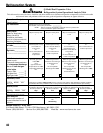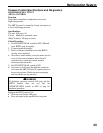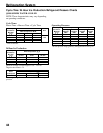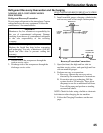
38
Refrigeration System
ANALYZING DISCHARGE PRESSURE DURING FREEZE OR HARVEST CYCLE
1. Determine the ice machine operating conditions:
Air temp. entering condenser ______
Air temp. around ice machine ______
Water temp. entering sump trough ______
2. Refer to Operating Pressure Chart for ice
machine being checked.
Use the operating conditions determined in Step
1 to find the published normal discharge
pressures.
Freeze Cycle ______ Harvest Cycle ______
3. Perform an actual discharge pressure check.
Freeze
Cycle PSIG
Harvest
Cycle PSIG
Beginning of Cycle
__________ __________
Middle of Cycle __________ __________
End of Cycle __________ __________
4. Compare the actual discharge pressure (Step 3)
with the published discharge pressure (Step 2).
The discharge pressure is normal when the
actual pressure falls within the published
pressure range for the ice machine’s operating
conditions.
Freeze Cycle Discharge Pressure High Checklist
Possible Cause Check/Correct
Improper installation • See “Installation/Visual Inspection Checklist” on page 7-10
Restricted condenser water
flow (water-cooled models)
• Low water pressure (20 psi min.)
• High inlet water temperature (90°F/32.2°C max.)
• Dirty condenser
• Dirty/defective water regulating valve
• Water regulating valve out of adjustment
Improper refrigerant charge • Overcharged
• Non-condensibles in system
• Wrong type of refrigerant
Other • Non-Manitowoc components in system
• High side refrigerant lines/component restricted (before mid-
condenser)
Freeze Cycle Discharge Pressure Low Checklist
Possible Cause Check/Correct
Improper installation • See “Installation/Visual Inspection Checklist” on page 7-10
Improper refrigerant charge • Undercharged
• Wrong type of refrigerant
Water regulating valve
(water-cooled condensers)
• Out of adjustment
• Defective
Other • Non-Manitowoc components in system
NOTE: Do not limit your diagnosis to only the items listed in the checklists.



